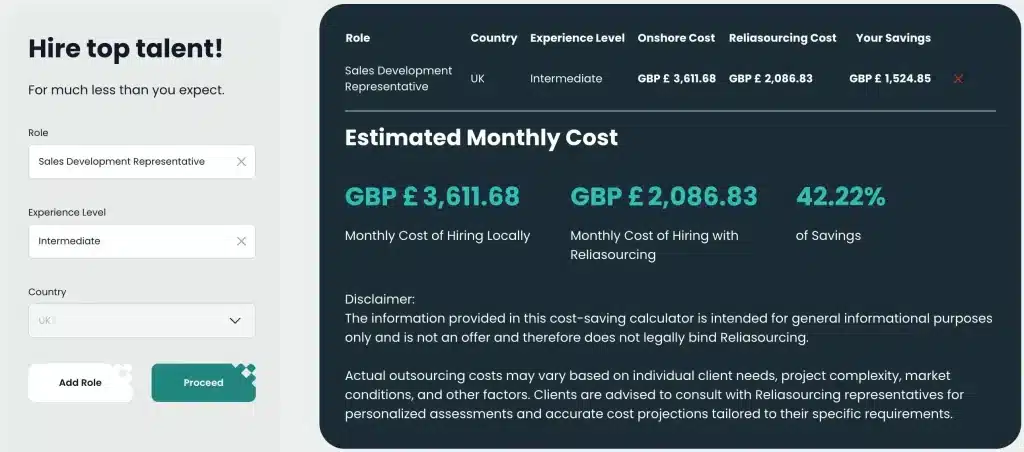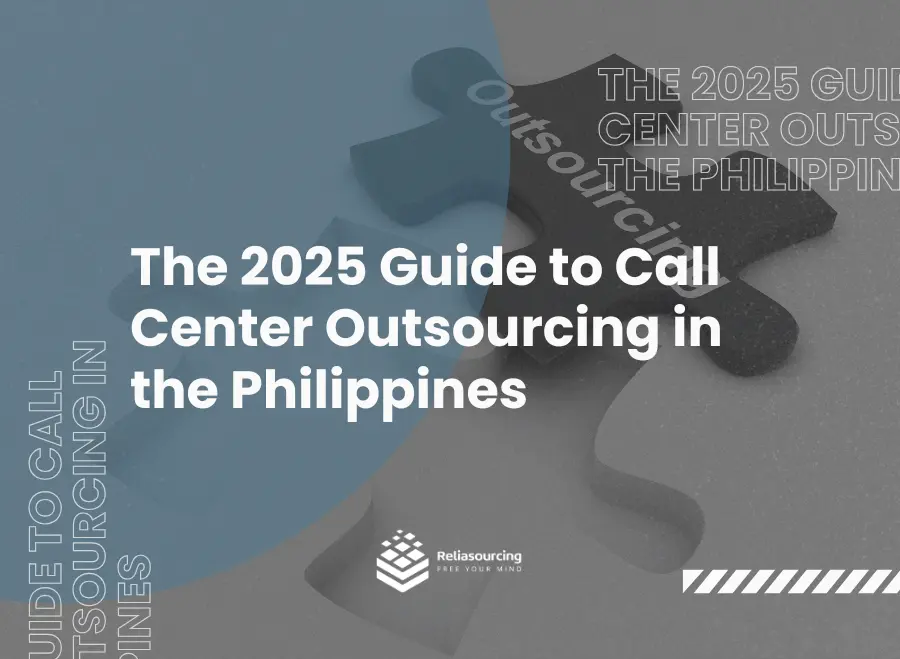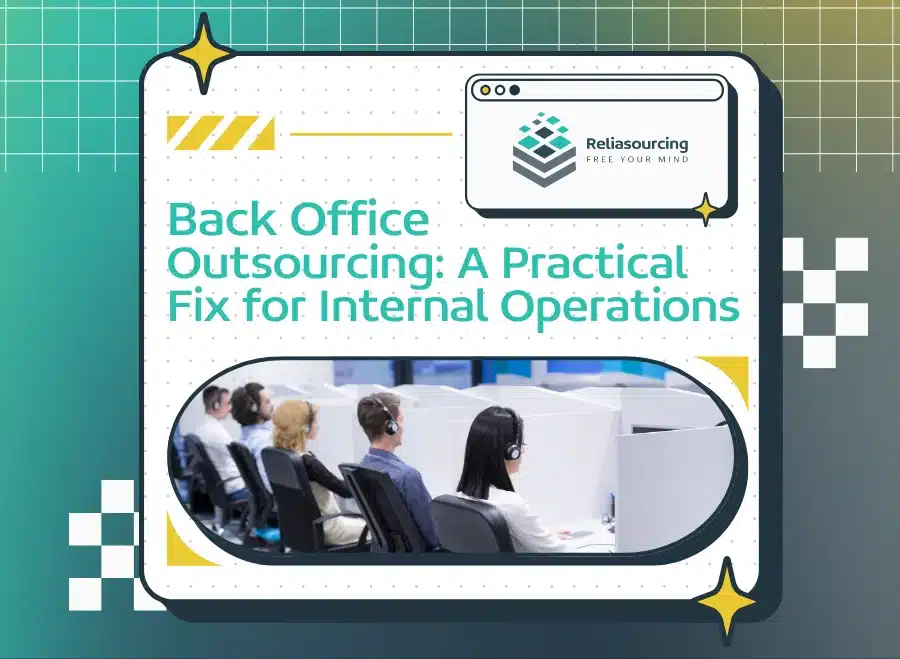In recent years, the Philippines has emerged as a global leader in outsourcing, attracting businesses from around the world seeking cost-effective solutions and skilled professionals. This comprehensive guide aims to delve into the intricacies of outsourcing to the Philippines, covering everything from the benefits and drawbacks to common outsourced operations and how to choose the right outsourcing provider.
Whether you’re a startup embarking on a journey of growth or an established enterprise aiming to streamline operations and enhance competitiveness, grasping the intricacies of outsourcing to the Philippines is crucial. For startups, outsourcing to the Philippines presents an opportunity to access a skilled workforce without the overhead costs associated with hiring and maintaining an in-house team. This enables startups to allocate resources strategically, focusing on core business activities while leveraging the expertise of Filipino professionals to handle essential tasks ranging from customer support to digital marketing.
On the other hand, established enterprises can leverage outsourcing to the Philippines as a strategic tool for scalability, flexibility, and cost optimization. It has been said and done, a company outsourcing non-core functions to specialized outsourcing providers improves efficiency, and redirect internal resources toward innovation and growth initiatives.
Moreover, tapping into the diverse talent pool and technological advancements offered by Filipino outsourcing firms empowers established enterprises to stay agile in a competitive market landscape, driving continuous improvement and sustainable business performance.
Why Outsource to the Philippines?
The decision to outsource to the Philippines is rooted in several compelling factors. Firstly, the country boasts a vast pool of skilled professionals proficient in various industries, ranging from IT and customer service to healthcare and marketing services. This skilled workforce, coupled with a pro-outsourcing government stance and robust infrastructure, creates an ideal environment for businesses seeking cost-effective yet high-quality outsourcing solutions.
Boasting a diverse and skilled workforce across various industries which includes IT professionals, customer service representatives, healthcare experts, and marketing specialists, the outsourcing industry in the Philippines provides tailored solutions for businesses worldwide. Moreover, the country’s supportive government policies and robust infrastructure further solidify its position as a top choice for outsourcing. The Philippine government actively promotes the industry through incentives, training programs, and advanced technological infrastructure, ensuring a seamless and efficient outsourcing experience for businesses worldwide.
Skilled Workforce Across Industries
The Philippines stands out for its diverse and skilled workforce covering a wide array of industries. This includes IT professionals capable of handling complex technological tasks, customer service representatives with excellent communication skills, healthcare professionals well-versed in medical processes, and marketing experts adept at promoting businesses effectively. This depth of talent ensures that businesses can find specialists tailored to their specific outsourcing needs, contributing significantly to operational efficiency and effectiveness.
Government Support and Infrastructure
Another key factor driving outsourcing to the Philippines is the supportive government policies and robust infrastructure. The Philippine government has actively promoted the outsourcing industry through incentives, training programs, and regulatory frameworks that facilitate smooth business operations. Moreover, the country’s advanced technological infrastructure, including reliable internet connectivity and modern facilities, enhances the overall outsourcing experience, ensuring seamless collaboration between onshore and offshore teams.
Benefits vs. Drawbacks of Outsourcing to the Philippines

The benefits of outsourcing to the Philippines are multifaceted. One of the primary advantages is the significant cost savings due to lower labor costs compared to Western countries. Moreover, Filipino workers are known for their impressive work ethics, English proficiency, and adaptability to various business processes. The country’s 24/7 operations across different time zones also ensure round-the-clock productivity.
On Cultural Differences
However, it’s essential to consider potential drawbacks as well. Cultural differences, such as a non-confrontational work culture may require companies to adjust their management approaches, communication styles, and conflict resolution strategies to ensure effective collaboration with their outsourcing partners.
On Income Preference
Additionally, companies should be prepared for differences in salary expectations and preferences for predictable compensation structures among Filipino workers. Unlike some Western countries where performance-based pay is common, Filipino employees often prioritize stability and consistent income. This preference may influence how companies structure their compensation packages and incentive schemes when outsourcing to the Philippines.
On Language & Communication
Companies may encounter challenges related to language proficiency, particularly in industries where English fluency is crucial. While many Filipinos have strong English skills, variations in accents, vocabulary, or communication styles may still pose occasional challenges in cross-cultural interactions.
While there are potential drawbacks to outsourcing to the Philippines the benefits far outweigh these challenges. The mentioned advantages can enhance operational efficiency, access specialized expertise, scale their operations effectively, and focus on core business functions.
With careful planning, communication, and collaboration, outsourcing to the Philippines can be highly beneficial, leading to increased productivity, reduced costs, improved customer service, and overall business growth.
Common Business Operations Outsourced to the Philippines
A wide array of business operations can be effectively outsourced to the Philippines. These include call center/contact center operations, IT services, data entry, technical support, accounting, marketing, healthcare services, and financial management services. The country’s expertise in these areas, coupled with strong educational initiatives, makes it a preferred destination for outsourcing across industries.
- Call Center/Contact Center Operations
The Philippines is renowned for its call center and contact center services, offering multilingual support, excellent communication skills, and round-the-clock availability. - IT Services
From software development to network management, Filipino IT professionals provide high-quality services in various IT domains, leveraging advanced technologies and industry best practices. - Data Entry
Outsourcing data entry tasks to the Philippines ensures accuracy, efficiency, and timely completion, thanks to skilled data entry specialists proficient in handling large volumes of data. - Technical Support
Filipino technical support teams offer comprehensive assistance for software, hardware, and IT infrastructure issues, delivering prompt solutions and enhancing customer satisfaction. - Accounting
The Philippines boasts a pool of qualified accountants and financial experts capable of handling accounting processes, bookkeeping, payroll management, and financial reporting with precision and compliance.
As the Philippines provides an extensive array of outsourced business operations across various sectors, companies have the opportunity to tap into specialized expertise, thus improving operational efficiency while maintaining cost-effectiveness.
However, selecting a reliable and reputable outsourcing partner becomes paramount for businesses embarking on this journey. This involves thorough due diligence to ensure compatibility, trustworthiness, and a shared vision for collaboration.
Factors to Consider When Outsourcing to the Philippines
When planning to outsource business operations to the Philippines, it’s essential to consider various factors that can significantly impact the success of your outsourcing strategy. These factors go beyond simple logistics and delve into cultural, financial, and operational aspects that play a crucial role in fostering a productive and harmonious outsourcing relationship.
- Cultural Nuances
Recognize and adapt to the non-confrontational nature and family-oriented priorities prevalent among Filipino workers. - Salary Preferences
Understand the typical salary expectations of Filipino employees and align them with industry standards to attract and retain top talent. - Performance-Based Compensation
Implementing performance-based incentives can motivate outsourced teams to achieve higher productivity and quality standards. - Employee Benefits
Offering competitive benefits packages, such as health insurance and career development opportunities, can enhance employee satisfaction and loyalty. - Infrastructure and IT Support
Ensure that the outsourcing partner has reliable infrastructure and robust IT support systems in place to facilitate seamless collaboration and efficient operations.
The Cost of Outsourcing to the Philippines
The landscape of outsourcing services in the Philippines reveals a compelling narrative, where businesses find themselves empowered by competitive pricing structures that typically range from $500 to $1,500 per month. This range starkly contrasts with the substantially higher costs associated with hiring local talent in Western nations.
Delving deeper into this cost analysis unveils key components that contribute to this advantageous pricing paradigm. Labor costs, a fundamental consideration in any outsourcing venture, notably contribute to the overall affordability of Filipino outsourcing services. Coupled with this, operational expenses, including infrastructure, utilities, and administrative overheads, maintain a favorable balance, further substantiating the cost-effectiveness of outsourcing to the Philippines.
Costs of Specific Outsourcing Services
From inbound and outbound call services costing $8 to $12 per hour per agent, to technical support priced at $10 to $14 per hour per agent. For IT services, including software development, the rates typically range from $18 to $25 per hour. Data entry tasks, such as data encoding and management, are available at $5 to $8 per hour per agent. Virtual assistance, covering administrative support, falls within the range of $5 to $8 per hour per agent. Additionally, content moderation services, which include social media monitoring and content moderation, are offered at rates between $8 to $12 per hour per agent.
However, it is essential to adopt a comprehensive perspective when assessing the cost benefits of outsourcing. While the financial advantages are clear and compelling, businesses must equally prioritize service quality. The symbiotic relationship between cost-effectiveness and service excellence forms the cornerstone of successful outsourcing endeavors, ensuring that businesses not only achieve substantial savings but also receive high-caliber services that drive operational efficiency and growth.
Reliasourcing’s Cost Calculator

With this cost calculator, businesses can gain valuable insights into estimating the costs associated with the outsourcing services they are considering for the future. This tool informs companies to make the best decisions by providing accurate projections and helping them budget effectively for their outsourcing needs. Visit Reliasourcing’s calculator here.
How to Choose the Right Outsourcing Provider in the Philippines
Selecting the right outsourcing provider in the Philippines requires careful consideration of several factors. It’s essential to assess the provider’s expertise in the services you require, their track record with similar clients, cultural alignment, communication channels, and pricing structures. Consulting with experienced outsourcing experts can streamline the selection process and ensure a seamless outsourcing experience.
Choosing the appropriate outsourcing partner in the Philippines involves evaluating various aspects. Here are three essential tips to guide your selection process:
- Assess Expertise and Track Record: Evaluate the outsourcing provider’s expertise in the specific services you need. Look into their track record with similar clients or projects to gauge their capabilities and reliability.
- Consider Cultural Alignment and Communication Channels: Cultural alignment is crucial for effective collaboration. Ensure the provider understands your business culture and values. Evaluate their communication channels and responsiveness to ensure smooth and efficient communication throughout the outsourcing partnership.
- Review Pricing Structures: Compare pricing structures among potential outsourcing partners. While cost-effectiveness is essential, prioritize value and quality of service over low pricing. Transparent pricing structures without hidden costs or unexpected charges are preferable.
Frequently Asked Questions
Whether you’re exploring outsourcing options or seeking to optimize your existing outsourcing strategy, here are frequently asked questions that can help clarify and guide you on your outsourcing journey.
How much does it cost to outsource to the Philippines?
Outsourcing costs vary based on the type of services, scope of work, and provider rates. On average, outsourcing to the Philippines offers significant cost savings compared to Western countries.
What makes the Philippines a great place to outsource?
The Philippines offers a skilled workforce, cost-effective solutions, English proficiency, cultural alignment with Western businesses, and government support for the outsourcing industry.
Can you outsource contact centers to the Philippines?
Yes, contact center operations are among the most commonly outsourced services to the Philippines, leveraging the country’s expertise in customer service and communication.
What industries typically outsource business operations to the Philippines?
Industries such as IT, healthcare, finance, marketing, and customer service frequently outsource business operations to the Philippines due to the availability of skilled professionals and cost advantages.
Why Reliasourcing Is the Right Choice for Outsourcing in the Philippines?
Reliasourcing stands out as a premier outsourcing partner for businesses looking to leverage the benefits of outsourcing to the Philippines. With a track record of delivering high-quality services, expertise across various industries, and a client-centric approach, Reliasourcing ensures seamless outsourcing experiences tailored to meet your business needs.
Outsourcing to the Philippines offers exceptional opportunities for businesses aiming to achieve cost-effective, efficient, and high-quality solutions in various operations. This guide highlights the benefits, considerations, and best practices, enabling businesses to make informed decisions and establish successful outsourcing partnerships that foster growth and operational efficiency.
Looking for the full potential of outsourcing to the Philippines? Dive into our comprehensive guide and discover how Reliasourcing can elevate your business with cost-effective, skilled solutions.
Whether it’s call center operations, IT services, data entry, or more, our expertise and client-centric approach ensure seamless outsourcing experiences. Contact Reliasourcing today and let’s optimize your operations together!









